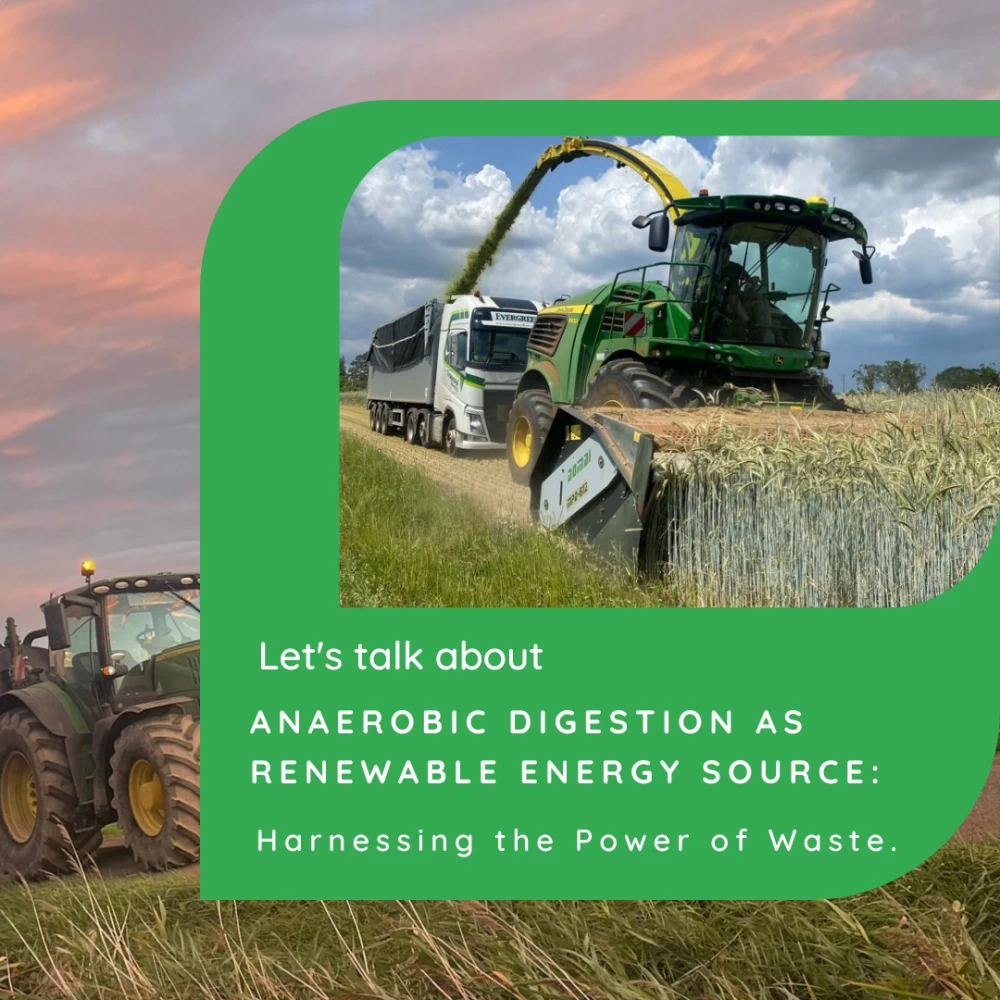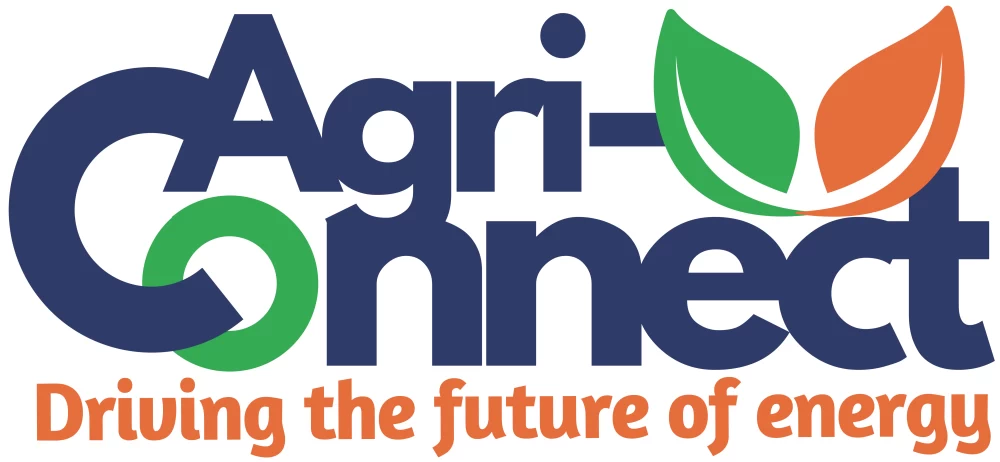
Anaerobic Digestion as a Renewable Energy Source:
Harnessing the Power of Waste
In the quest for sustainable energy sources, anaerobic digestion has emerged as a key solution. This process not only helps manage organic waste but also generates renewable energy. In this blog, the team at Agri-Connect explores the role of anaerobic digestion in producing renewable energy and its impact on reducing greenhouse gas emissions.
1. Harnessing the Power of Waste:
Anaerobic digestion utilises organic waste, such as agricultural residues, food waste, and sewage, to produce renewable energy. This waste would otherwise end up in landfills, contributing to greenhouse gas emissions. By diverting this waste to anaerobic digesters, we can unlock its potential as a valuable energy source.
2. The Renewable Energy Potential:
a. Biogas Production: The main output of anaerobic digestion is biogas, a mixture of methane (CH4) and carbon dioxide (CO2). The methane content in biogas can range from 50% to 70%. This methane-rich biogas can be harnessed and utilised as a renewable energy source.
b. Energy Conversion: Biogas can be utilised in various ways:
- Electricity Generation: Biogas can be used in gas engines or turbines to produce electricity, which can power homes, industries, and communities.
- Heat Production: The heat generated as a by-product of electricity generation can be used for space heating or industrial processes.
- Biomethane Production: Biogas can undergo further purification to remove impurities, resulting in biomethane. Biomethane can be injected directly into natural gas grids or used as a vehicle fuel, replacing fossil fuels.
3. Impact on Greenhouse Gas Emissions:
a. Methane Capture: One of the significant advantages of anaerobic digestion is the capture and utilisation of methane, a potent greenhouse gas. Methane has a global warming potential over 25 times higher than carbon dioxide. We can significantly reduce our carbon footprint by preventing methane emissions through anaerobic digestion.
b. Carbon Neutrality: Biogas generated from anaerobic digestion is considered carbon neutral. The carbon dioxide emitted during its combustion is equal to the carbon dioxide captured during the growth of the feedstock. This closed-loop process minimises greenhouse gas emissions and helps combat climate change.
4. The Path to Sustainability:
a. Waste Diversion: Anaerobic digestion diverts organic waste from landfills, reducing the environmental and health risks associated with waste decomposition in anaerobic conditions. This approach helps conserve land, prevents groundwater contamination, and reduces the release of harmful substances.
b. Circular Economy: By utilising organic waste as a resource for renewable energy production, anaerobic digestion promotes a circular economy. The process reduces waste and contributes to nutrient recycling, as the by-product of anaerobic digestion, called digestate, can be used as a biofertiliser.
5. Real-life Applications:
The implementation of anaerobic digestion for renewable energy production is gaining traction globally. Examples include:
- Municipal biogas plants that process food waste and sewage to generate electricity and heat.
- Agricultural facilities that use anaerobic digesters to manage livestock manure and crop residues while producing on-site energy.
- Industrial sectors, such as food processing plants, breweries, and distilleries, that utilize anaerobic digestion to convert organic waste into renewable energy.
Conclusion:
Anaerobic digestion not only presents a solution for waste management but also offers a reliable and sustainable renewable energy source. By capturing and converting biogas into electricity, heat, and biomethane, together we can reduce greenhouse gas emissions, divert waste from landfills, and promote a circular economy. Embracing anaerobic digestion as a renewable energy source will play a vital role in transitioning towards a more sustainable and low-carbon future.
To learn more about how you can harness the power of your waste, contact Agri-Connect today at enquiries@agri-connect.co.uk.


